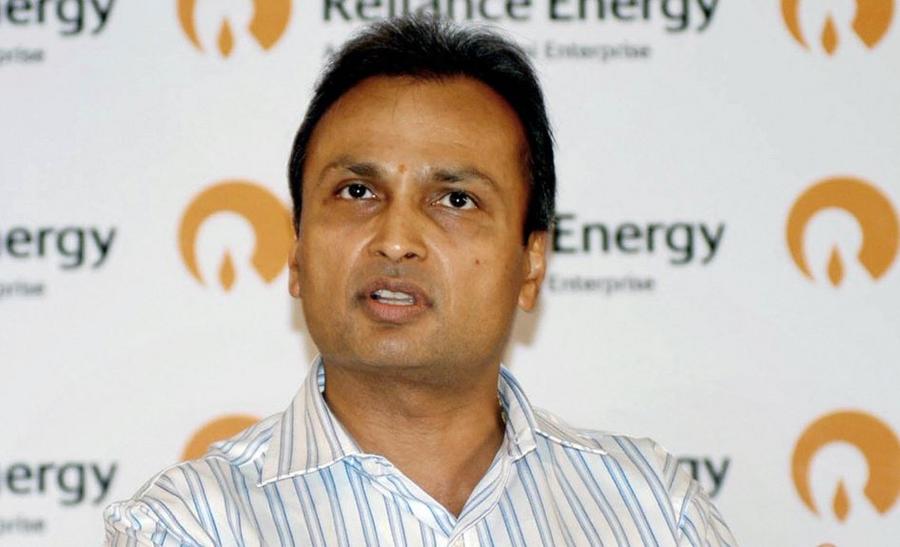Anil Ambani at a Glance
- Categories: Business > Billionaires, Business
- Net Worth: $0
- Birthdate: Jun 4, 1959 (65 years old)
- Birthplace: Mumbai
- Gender: Male
- Profession: Businessperson
- Nationality: India
The Rise and Fall: Exploring Anil Ambani’s Net Worth and Business Empire
Introduction: A Business Titan’s Journey
Anil Ambani, once a prominent figure in the Indian business landscape, has experienced a dramatic shift in fortune. This article delves into the life and career of Anil Ambani, exploring his business ventures, the evolution of his net worth, and the controversies that have marked his journey. We’ll examine his early life, the formation of the Reliance Group, his involvement in politics, and the legal issues that have significantly impacted his financial standing.
Anil Ambani’s Current Net Worth: The Zero-Dollar Reality
Anil Ambani’s net worth is currently reported as $0. This stark reality is a far cry from his past status as one of India’s wealthiest individuals. The drastic change is primarily due to significant liabilities. In a February 2020 court filing, Ambani himself declared his net worth to be zero, highlighting the immense debt he was carrying. This declaration came during a legal battle involving a $700 million debt owed to several Chinese banks. A judge ordered him to set aside $100 million in a court account as part of the proceedings. The transformation from billionaire to effectively bankrupt underscores the complex challenges he has faced.
Early Life and Education: Shaping a Business Mind
Born on June 4, 1959, in Bombay, India, Anil Ambani is the son of the legendary Dhirubhai Ambani, the founder of Reliance Industries. He has an older brother, Mukesh Ambani, and two sisters, Nina and Deepti. Anil pursued his higher education at Kishinchand Chellaram College, earning a Bachelor of Science degree. He then went on to the United States to attend the prestigious Wharton School of the University of Pennsylvania, where he obtained a Master of Business Administration degree in 1983. This educational foundation provided him with a strong base for his future business endeavors.

Getty
The Reliance Group: A Family Split and Corporate Expansion
The death of Dhirubhai Ambani in 2002 created a succession crisis within Reliance Industries. With no will in place, a bitter power struggle ensued between Anil and his brother Mukesh. Their mother, Kokilaben, ultimately intervened and brokered a truce, dividing the family business. Mukesh took control of the refining and petrochemical businesses, while Anil gained control over financial services and power generation units. This split in 2005 led to the creation of Reliance Group, with Anil Ambani as its owner, chairman, CEO, and managing director, in 2006. The creation of the Reliance Group included Reliance Infocomm, Reliance Energy, and Reliance Capital. A key achievement under his leadership was the initial public offering (IPO) of Reliance Energy (later renamed Reliance Power) in 2008, which was the largest IPO in India at the time.
Business and Legal Troubles: A Series of Challenges
Anil Ambani’s business career has been marred by a series of legal challenges. Key issues include:
- Criminal Contempt: In early 2019, a Mumbai court found him in criminal contempt for non-payment of debt owed by Reliance Communications to Ericsson. He was given a month to pay, and his brother Mukesh ultimately had to provide financial assistance to prevent his imprisonment.
- Debt to Chinese Banks: He faced a legal battle with three Chinese banks over a $716 million debt. He declared bankruptcy in a UK court during this case.
- Pandora Papers: In 2021, both Anil and Mukesh Ambani were named in the Pandora Papers, revealing secret offshore accounts.
- Tax Evasion Accusations: The Income Tax Department accused him of tax evasion in 2022.
These legal battles have significantly contributed to his financial downfall and tarnished his reputation.
Political Ventures: A Brief Stint in Parliament
Beyond the business world, Anil Ambani also ventured into politics. He served in the Rajya Sabha, the upper house of the Indian Parliament, representing Uttar Pradesh as an Independent MP from 2004 to 2006. This political role provided him with a platform to influence policy and network with influential figures. His time in politics, however, was relatively short-lived compared to his business career.
Honors and Awards: Recognizing Business Acumen
Despite the challenges, Anil Ambani received several honors and awards during his career, including:
- Businessman of the Year (1997): Awarded by Business India magazine in December 1998.
- Wharton Indian Alumni Award: Received from the Wharton India Economic Forum.
- Entrepreneur of the Decade Award: Presented by the Bombay Management Association.
- Platts Global Energy Award: CEO of the Year for 2004.
These accolades reflect the recognition he once received for his business achievements, particularly during the early stages of his career.
Personal Life: Family and Relationships
In 1991, Anil Ambani married the actress Tina Munim. The marriage faced initial resistance from his family, but the couple eventually built a loving relationship and have two sons, Jai Anmol and Jai Anshul. His family life has provided a personal anchor amid the pressures of the business world and the controversies he has faced.
Conclusion: Reflecting on Ambani’s Legacy
Anil Ambani’s journey presents a complex narrative of ambition, success, and significant challenges. From a position of immense wealth to a declaration of zero net worth, his story is a cautionary tale of the unpredictable nature of business and the impact of legal and financial decisions. While his early business achievements were widely celebrated, recent controversies and the decline in his financial standing have significantly reshaped his legacy. His story continues to be a subject of interest and analysis in the Indian business landscape, reminding us of the volatility of fortunes and the importance of strategic planning and risk management.

